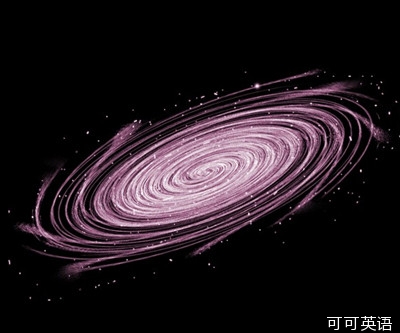In planet formation, as in adolescence, you've got your late bloomers. Such is the case for a nearby star called TW Hydrae. At some three million to 10 million years of age, it's relatively old for a young star. That is, TW Hydrae formed much more recently than our sun but is past the point at which most fledgling stars are still encircled by a massive disk of dust and gas—the stuff of planet formation.
可能在青春期,你属于那迟开的花朵,某些行星的形成也如此。一颗被称作长蛇座TW的邻近恒星也属于这类情况。长蛇座TW的年龄大约在300万至1000万年之间,比一颗新星稍微老一些。也就是说,长蛇座TW的形成晚于太阳,但却早于大多数初出茅庐的新星,那些新星周围仍然环绕着大量星尘和气团,而它们则是最初形成行星的材料。

But a new analysis shows that TW Hydrae retains a surprisingly hefty circumstellar disk, implying that the star could still be forming giant planets. The study appears in the journal Nature.
但是一项新的分析显示:长蛇座TW周围仍然环绕着异常巨大的碟状物,这说明长蛇座TW仍然在形成行星。这项研究发表在《自然》杂志上。
Researchers from the U.S., Germany and the Netherlands pointed the European Space Agency's orbiting Herschel Space Observatory at TW Hydrae to investigate the star's disk. They detected a heavy hydrogen molecule called hydrogen deuteride. From that measurement they were able to estimate the abundance of ordinary hydrogen, which makes up the bulk of the disk.
来自美国、德国和荷兰的研究人员将欧洲太空总署的赫歇尔空间天文观测台指向长蛇座TW,以研究其周围环绕的碟状星云。他们探测出了一种叫做氘化氢的高质量氢分子。通过测量,他们能估算出普通氢气的密度,而普通氢气是组成星云的主要成分。
The result: TW Hydrae still has enough raw material left to make 60 Jupiters or so, despite its maturity. For aging stars, then, perhaps 10 million is the new 30.
研究结果:在不考虑年龄的情况下,长蛇座TW周围留下的原材料足够用来形成大约60个木星。对于老年恒星来说,大概1000万年只相当于人类的30岁出头。














